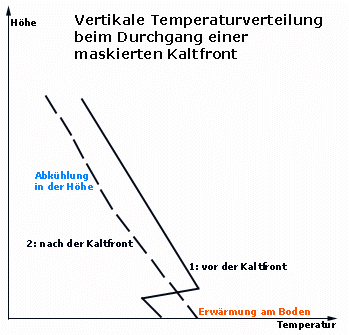Nach ersten Powder-Tagen des Winters 2013/14 und Hochdruckdruckwetter wird es zum Wochenende wieder unbeständiger.
Aktuelle Lage
Ende letzter Woche und am Wochenende sorgten erst Süd- und anschließend Nordstau in weiten Teilen der Alpen für erste Anflüge von Powderstress. Seither ist es mehr oder weniger trocken und kalt und die Bergwelt glitzert ganz traumhaft, sodass man fast schon Lust hat, der zunehmend aufdringlichen Weihnachtsstimmung nachzugeben. Während es am Montag dank Nordföhn noch verbreitet ziemlich windig war, hat sich auch das inzwischen gelegt, allerdings nicht ohne für einiges an Triebschnee zu sorgen. Der ein oder andere Lawinenwarndienst hat daraufhin die Sommerpause beendet: TirolSalzburgSchweiz
Aussichten
Das frühwinterliche Kaiserwetter dürfte im Laufe des Donnerstags (28.11.2013) langsam einen kleinen Dämpfer bekommen. Von Norden nähert sich im Laufe des Tages eine Warmfront, die erst Wolken und dann in den Ostalpen auch ein wenig Niederschlag bringt. Die Temperaturen steigen etwas, aber es wird nicht wirklich warm. Bezüglich Regen muss man sich zumindest in den Bergen wohl keine Sorgen machen, in tieferen Tälern steht allerdings eventuell ein wenig Matschwetter bevor. Am Freitag sieht es wieder überall relativ sonnig aus, die Anströmung dreht auf Nordwest und es wird noch mal ein bisschen wärmer, bevor in der Nacht auf Samstag die nächste Kaltfront anrückt. Besonders viel Neuschnee wird sich dabei wohl nirgends ausgehen, die Westalpen kriegen ein paar Zentimeter mehr ab als der Osten. Am Sonntag wird es voraussichtlich wieder verbreitet schön, die weiteren Aussichten sind noch recht unsicher. Im Mittelmeerraum bildet sich zwar ein Tief, es dürfte aber schnell nach Süden abrutschen und somit nicht viel hergeben.
Maskierte Kaltfront
Während der sonnigen, kalten letzten Tage hat sich vielerorts durch nächtliche Ausstrahlung eine bodennahe Kaltluftschicht gebildet (Inversion). Wenn nun am Samstag die Kaltfront eintrifft, bringt sie Luftmassen vom Atlantik mit, die unter Umständen wärmer sind, als diese bodennahe, kalte Schicht. Während dem Durchzug der Front werden die Schichten durchmischt und die kalte Luft am Boden wird ausgeräumt. In Summe ist es dann am Boden nach der Kaltfront wärmer, als davor, während sich die höheren Luftschichten abkühlen. Man spricht in diesem Fall von einer maskierten Kaltfront, weil man als typischerweise bodennah angesiedelter Mensch ja nur mitkriegt, dass es wärmer wird und sich die Kaltfront somit erfolgreich getarnt hat. (Meteorologen lassen sich von solch simplen Täuschungsmanövern natürlich nicht in die Irre führen!)









